Ben Horowitz kicks off “The Hard Thing About Hard Things” on what it really takes to run a business.
He’s not theorizing. He lived it.
Back in 1999, Ben co-founded LoudCloud, grew fast, then watched the tech crash almost destroy it. He didn’t give up. He made brutal calls, spun off Opsware, and eventually sold it for $1.6B. That’s where this book draws its lessons from—real, messy, high-stakes business war zones.
This isn’t some motivational fluff. It’s a guide for people like you—solo founders, side hustlers, startup dreamers—who are in the thick of figuring it all out. You’ll learn how to lead when nothing makes sense, how to deal with fear, and how to stop chasing shortcuts and start building resilience. Let’s get into it.
Table of Contents
Detailed Summary of The Hard Thing About Hard Things by Ben Horowitz
“The hard thing isn’t dreaming big. The hard thing is waking up in the middle of the night in a cold sweat when the dream turns into a nightmare.”
That’s how Ben Horowitz sets the tone in The Hard Thing About Hard Things.
He isn’t giving you theory. He’s telling you what it felt like to almost lose everything.
In this book, he shares raw, firsthand lessons from building LoudCloud, nearly watching it crash, and turning it around into Opsware, which he later sold for $1.6 billion. He doesn’t hand out inspirational quotes. He tells you how to survive when nothing is working, when your company is burning, and your people are looking to you for answers.
He talks about how to lead through layoffs. How to build trust when everything is falling apart. And how to stop avoiding the ugly parts of running a business.
Here’s what you’ll get from it:
- Why you need to tell the truth, even when it’s bad
- How to hire people who align with your mission
- What to do when there are no good options
- Why giving clear goals beats micromanaging tasks
- How to train, promote, and evaluate fairly
- The value of putting your people before your product and your product before profits
If you’re starting a business, or in the middle of building one, this book gives you the real playbook. It won’t sugarcoat anything. But it’ll show you how to lead through chaos.
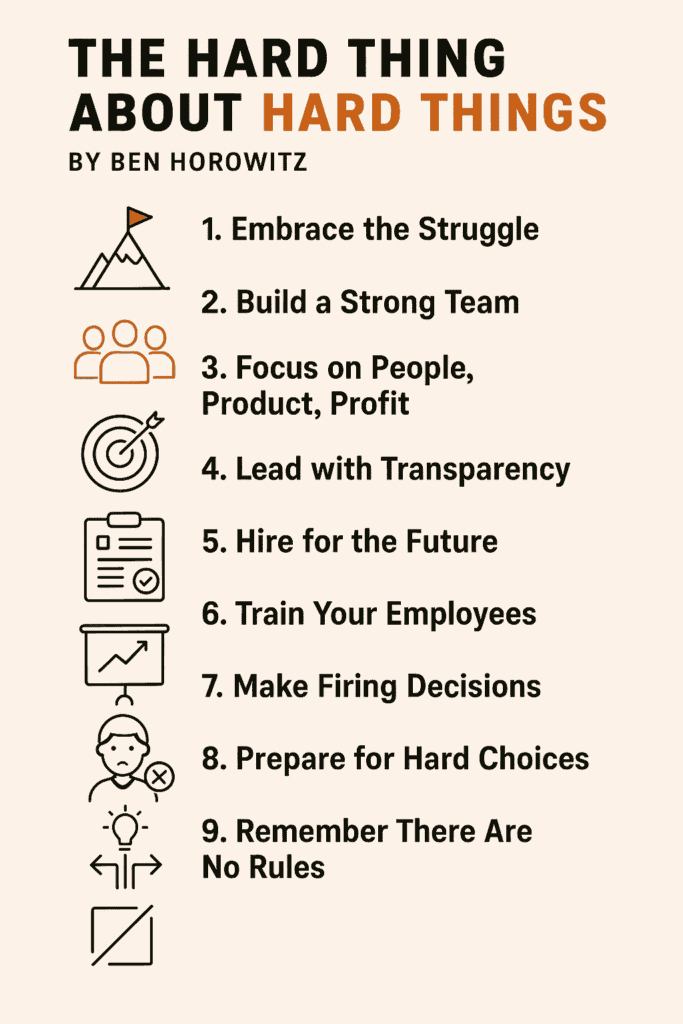
9 Things to Learn from The Hard Thing About Hard Things by Ben Horowitz
Ben doesn’t offer feel-good business advice. He shows you how to survive the real stuff — when cash is low, morale is lower, and the pressure to figure it out is all on you.
Here are 9 lessons from the book that every founder, solopreneur, or side hustler needs to hear.
1. There is no formula for hard decisions
He says most books only teach you what to do when everything’s working. But when things go sideways, there’s no playbook.
You’ll have to make calls that keep you up at night.
Let go of people you like. Bet on something you’re unsure of.
And you won’t know if you made the right call until much later.
You need to build the courage to decide anyway.
No one’s coming to rescue you.
2. People > Product > Profit
This is how he orders company priorities.
If your people are unhappy, they won’t build great products.
If your products are bad, customers leave. If customers leave, there’s no profit.
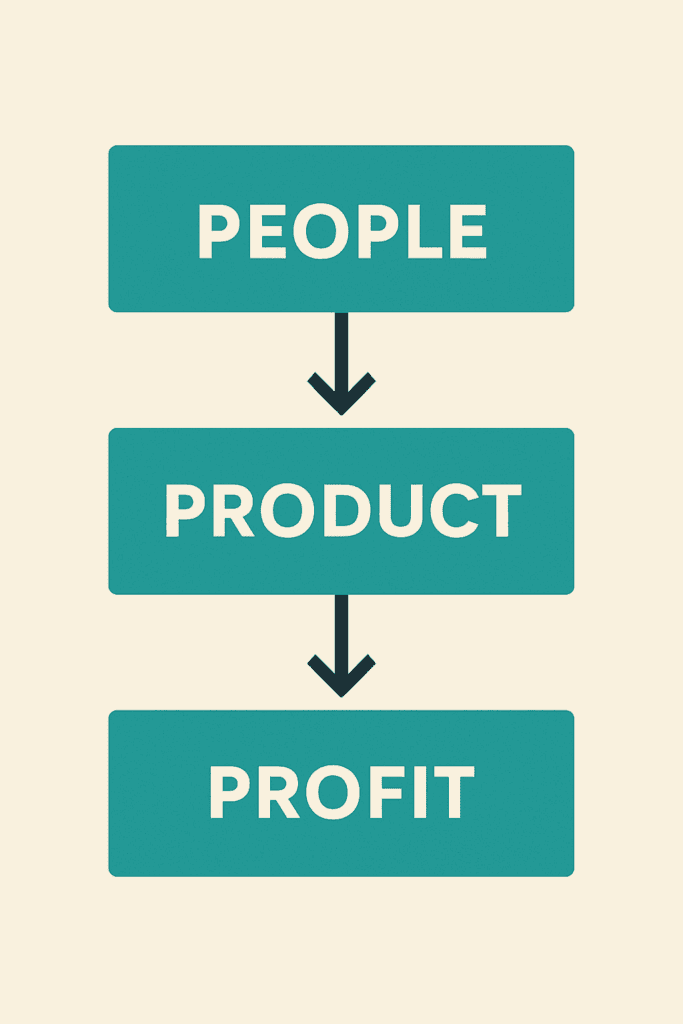
If you’re building something, don’t skip straight to money.
Hire people who believe in your vision. Take care of them.
Then obsess over delivering something that actually helps your users.
Profit will follow.
3. Be 10x better or don’t bother
In tech, he says, being slightly better than competitors isn’t enough.
You need to be 10x better to stand out and survive.
That means sharper execution, deeper focus, and a serious commitment to quality.
Ask yourself:
Would a user switch to your product and stay, even if it meant more effort?
If not, you have work to do.
4. Hire for strengths, not lack of weaknesses
He warns against picking “safe” candidates.
Every person has flaws. So if you focus too much on what’s wrong, you’ll miss what they’re great at.
Instead, ask:
Does this person have the skills to solve the problem in front of me today?
Do they believe in what I’m building?
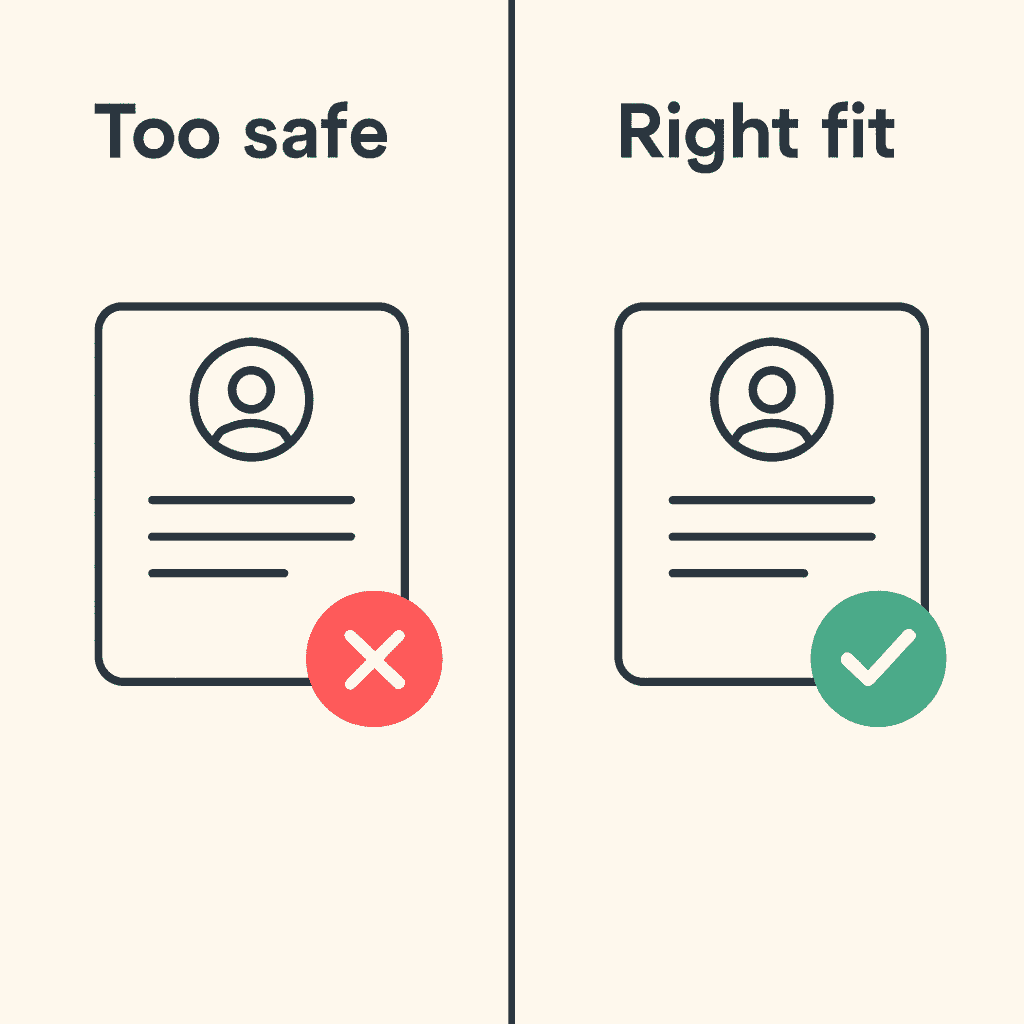
Don’t delegate the final decision. Take full ownership of every hire.
5. Clear policies reduce chaos
He believes startups suffer not because they grow fast, but because they lack structure.
When rules are unclear, people play politics.
When you set policies early, you create consistency and reduce drama.
Define how decisions are made.
Make sure everyone knows the expectations.
And when the pressure’s on, your systems will help you hold it together.
6. Tell the truth when things go wrong
When disaster hits, many leaders lie or hide. He says that’s a mistake.
Your people can handle bad news. What they can’t handle is distrust.

Tell the truth. Own the problem.
Get everyone focused on fixing it.
You’ll build a team that fights with you instead of one that just waits to be told what to do.
7. Don’t promote based on loyalty
This one stings. He admits he made this mistake.
Just because someone’s been with you from the start doesn’t mean they can lead.
He talks about cases where loyal team members were moved into roles they weren’t ready for — and how that hurt the entire business.
Reward loyalty, yes. But match people to roles they can succeed in.
Even if that means giving raises instead of titles.
8. Train your people
Most leaders skip training. They say it takes too much time.
He says that’s shortsighted. Training is how you make your people better.

It’s how they feel valued.
And it’s how you make sure your company keeps improving from the inside out.
Even basic, regular training sessions can save you from bad habits, burnout, and turnover.
So don’t ignore it. Build it in.
9. Set goals, not tasks
Micromanaging kills growth.
Telling people how to do things is slower than just telling them what needs to happen.
He tells a story about managing salespeople.
Instead of telling them to make 100 calls, he told them to close 10 deals.
Then let them figure it out.
When you set outcomes instead of instructions, people start to take ownership.
They grow. Your company grows with them.
The Hard Thing About Hard Things by Ben Horowitz is one of the few business books that doesn’t pretend this stuff is easy.
It’s messy. It’s emotional.
But if you’re building something real, you need this kind of honesty.
Conclusion
Building a business is hard. There’s no way around it. The Hard Thing About Hard Things by Ben Horowitz gives you the truth most people won’t say out loud. It’s not always about motivation.
Sometimes it’s about survival. If you’re figuring out what to build or trying to keep what you’ve built from collapsing, this book will help.
It won’t solve your problems, but it’ll make you feel less alone while solving them. Want to learn how to test, build, and adapt fast without burning out? Read my blog post on The Lean Startup.
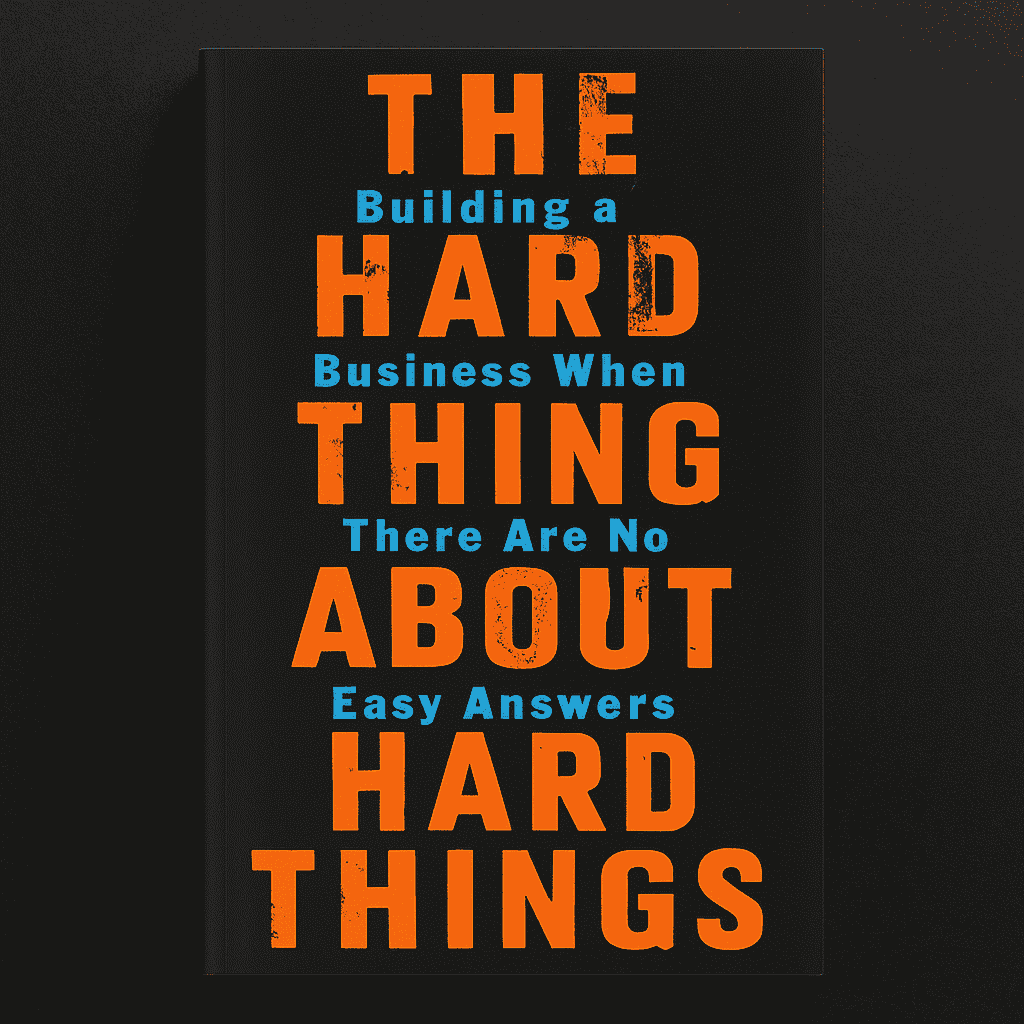
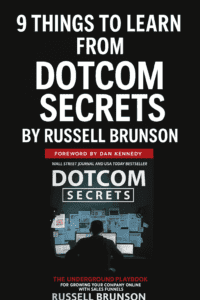
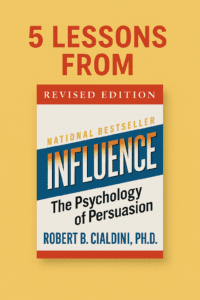
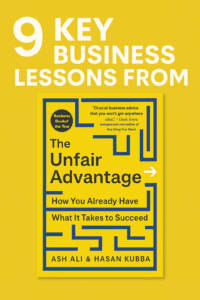
Pingback: 9 Things You’ll Learn from Never Split the Difference by Chris Voss and Tahl Raz (Plus Book Summary)